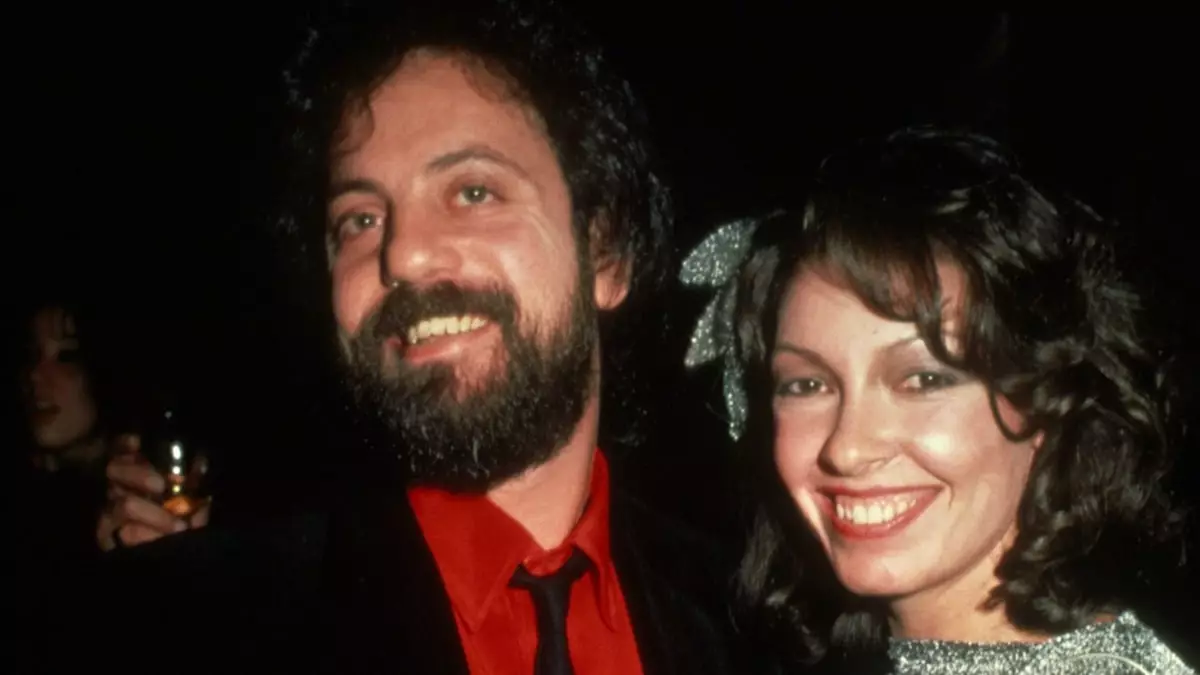In a remarkable display of resilience and courage, Elizabeth Weber, the often-overlooked first wife of music icon Billy Joel, emerged from decades of relative anonymity to make an impactful appearance this week at the premiere of his new HBO documentary, *And So It Goes*. Her attendance at New York City’s Tribeca Festival, alongside her son Sean Small, not only marked a significant moment for the 82-year-old but also sparked renewed interest in a relationship that once captured the public’s imagination. This rare public outing was a potent reminder of the complex narrative between the famous couple, showcasing reflections about love, struggle, and the creative process—an illustration of how personal history can both haunt and inspire.
Elizabeth’s striking silver hair and quiet confidence resonated with attendees, compelling onlookers to take notice. For the first time in over forty years, she spoke openly about her marriage to Billy Joel, a relationship marked by love, tension, and a shared journey through the harrowing challenges that molded two iconic careers in American music. “It was great then, it’s great whenever I think about it, and it’s great now [to revisit],” she shared with *People*, suggesting a thoughtful perspective on her tumultuous romantic past.
The Muse Behind the Music
The documentary, directed by Susan Lacy and Jessica Levin, sheds light on the early years of Billy Joel’s life, most notably illustrating how deeply intertwined his music has always been with his affection for Elizabeth. In a surprising yet poignant revelation within the film, Billy recounts his heartbreak over Elizabeth’s departure, which eventually inspired several of his love ballads. “I was just in love with a woman,” he admits transparently, exposing the vulnerabilities that shaped his artistry. Decisions made amidst complex emotional landscapes highlight a fascinating duality: a love story that feeds creativity, yet is shadowed by personal strife.
Elizabeth’s role transcends that of a mere partner; she was a creative force and a pragmatic manager who drove Billy’s career forward. When discussing the release of *Just The Way You Are*, a song originally conceived as a birthday gift, one can see how her unwavering belief in him turned the tide of his career. “I didn’t even want that song on the album,” Billy admits, illustrating how Elizabeth’s instinctual grasp of their collaborative synergy directly paved the way for monumental success.
From Triumph to Turmoil
Their love story was compelling, but it was also fraught with trials that mirrored both Elizabeth’s and Billy’s personal demons. As Billy’s star power grew, his subsequent struggles with addiction created a rift that proved too wide for Elizabeth to bridge. By the early 1980s, overwhelmed and seeking to reclaim her own narrative, she opted to step away—not just from their marriage but also from her management role in his career. The subsequent motorcycle accident that left Billy severely injured serves as a somber reminder of the costs of fame and addiction.
In many ways, Elizabeth’s departure marked a pivotal moment for both of them—a divergence as profound as it was painful. As Billy went on to marry supermodel Christie Brinkley, the world witnessed an evolution of stardom that appeared to overshadow his first great love. Meanwhile, Elizabeth faded into obscurity, her profound influence relegated to whispers in the annals of music history.
A New Chapter of Reflection
Now, as Elizabeth steps back into the limelight, her motivation is not merely to resurrect her past but to reshape the narrative surrounding her life and contributions. Encouraged by her family and friends, including Steve Cohen, an executive producer for the documentary, she hopes to reclaim her voice after years of being misunderstood and sometimes maligned online. “She’s been maligned incredibly in the blogosphere,” Cohen pointed out, emphasizing that public perception often fails to encapsulate the complexities of real-life relationships.
As she walked arm-in-arm with Sean at the premiere, Elizabeth’s presence was not only moving but also significant. It shifted the focus of the conversation about Billy Joel’s legacy, reminding the audience that behind every musical genius, there often lies a personal history that is equally compelling. While Billy’s absence from the event due to health concerns speaks to the fragility of life, Elizabeth’s courage to step forth offers a newfound hope, illuminating a previously obscured chapter of their intertwined existence.
As the narrative evolves, the documentary serves as a platform for well-deserved recognition, inviting viewers to investigate profound themes of love, loss, and inspiration. Elizabeth Weber’s unexpected return to the public sphere is a testament to her enduring strength, her ability to reflect, and, ultimately, her resolve to be seen anew.

